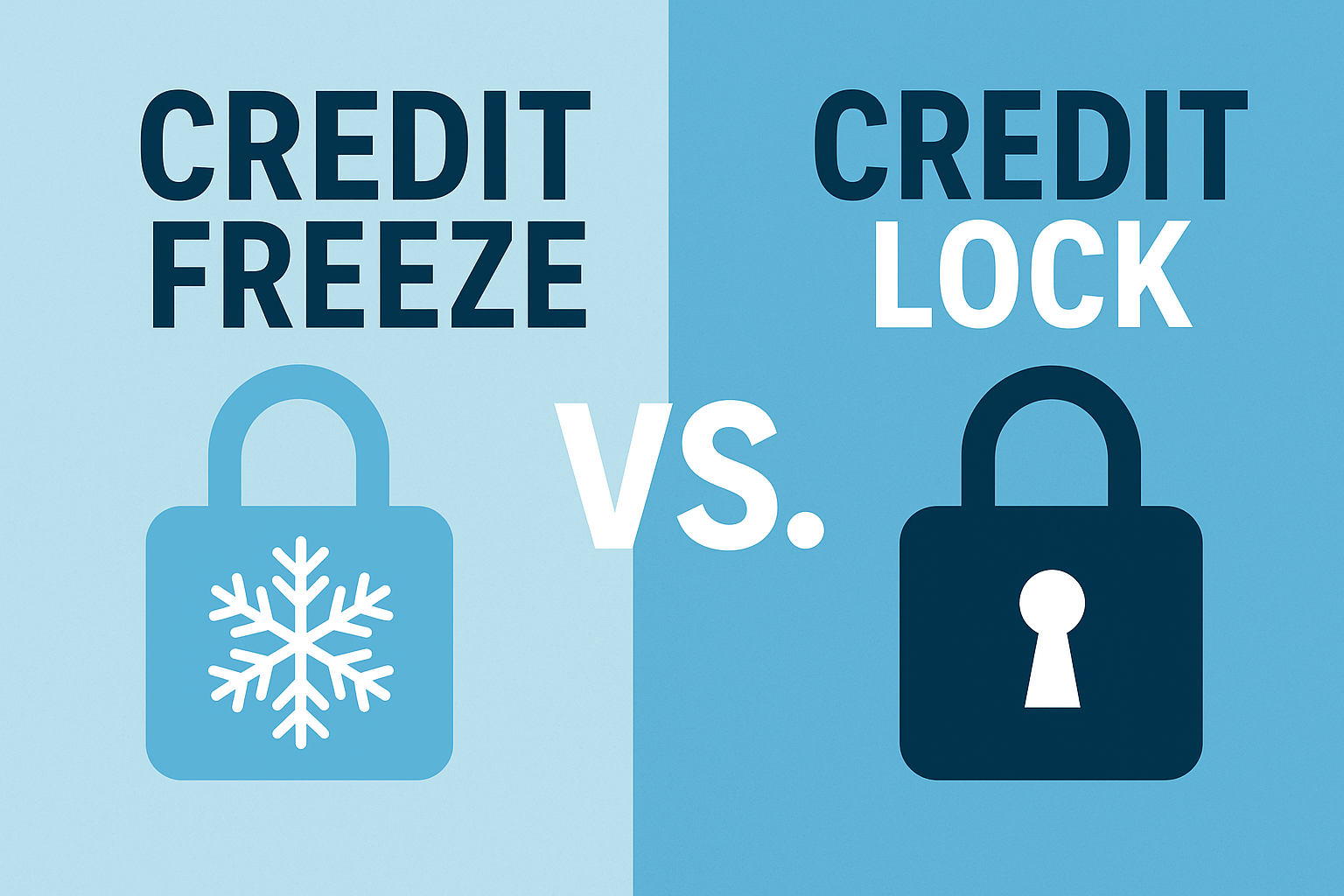One of the easiest and most effective ways to protect your personal information is by freezing your credit. In this blog post, we’ll explore the difference between freezing and locking your credit and why we strongly recommend freezing your credit to defend against identity theft.
🔒 What’s the Difference Between a Credit Freeze and Credit Lock?
While both options are designed to prevent unauthorized access to your credit report, there are key differences:
-
Credit Freeze:
-
Free through all three major credit bureaus (Equifax, Experian, and TransUnion)
-
Prevents lenders from accessing your credit report without your permission
-
Must be manually lifted (or “thawed”) if you need to apply for credit
-
Now easy to manage online
-
-
Credit Lock:
-
Typically requires a paid subscription
-
Offers similar protection but may come with additional monitoring features
-
Not legally governed like a credit freeze
-
💡 Why You Should Freeze Your Credit
With countless data breaches over the past decade, you should assume your personal information is already available on the dark web. That means it’s no longer a matter of if someone will try to use your identity—it’s a matter of when.
By freezing your credit, you make it much more difficult for cybercriminals to open fraudulent accounts in your name. While you’ll need to temporarily unfreeze your credit when applying for a loan or credit card, this process has become much easier and faster in recent years.
🛠️ How to Freeze Your Credit
To fully protect yourself, you’ll need to place a freeze with all three major credit bureaus:
-
Equifax – www.equifax.com
-
Experian – www.experian.com
-
TransUnion – www.transunion.com
Each bureau will walk you through the process online. You’ll create an account and set a PIN or password for unfreezing when needed.
✅ Final Thoughts
Freezing your credit is one of the most effective steps you can take to prevent identity theft—and it’s completely free. With how simple the process has become, there’s really no reason not to do it.
Take action today: Freeze your credit, protect your identity, and stay one step ahead of cybercriminals.
If you found this tip helpful, subscribe to our YouTube channel for more cybersecurity best practices and tech advice. And if your business needs a trusted IT partner, contact us for a free network assessment.
Stay safe out there!

